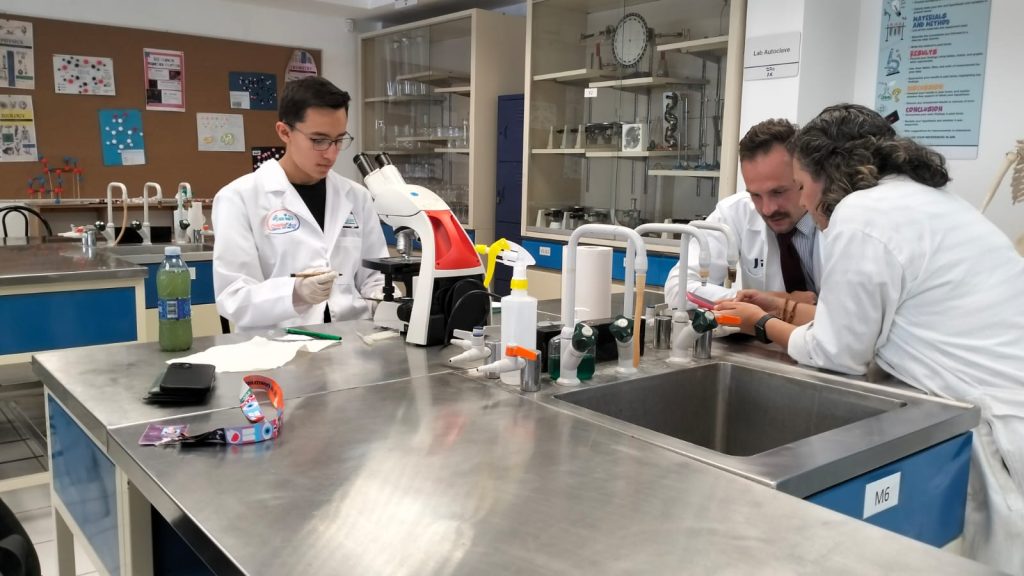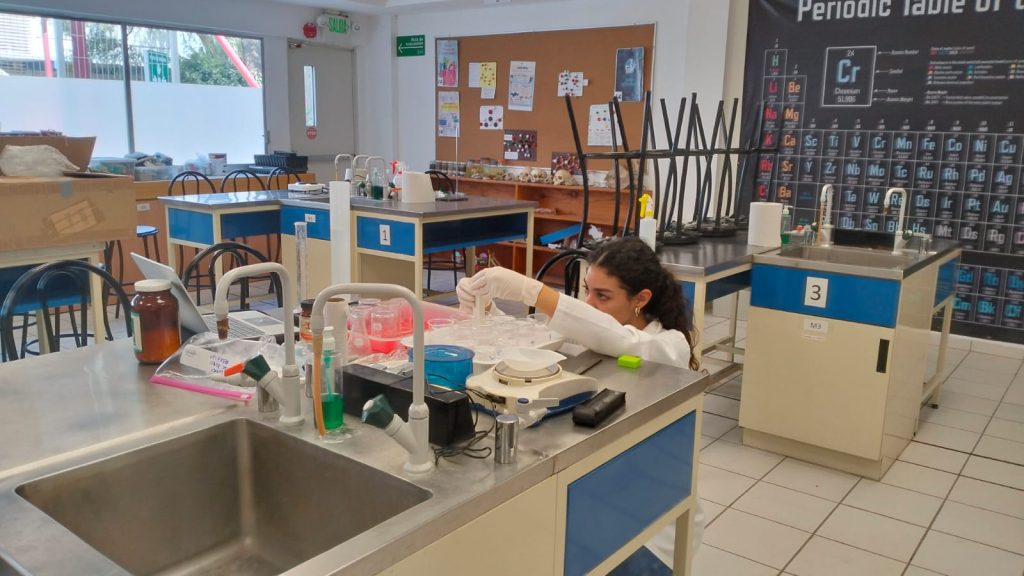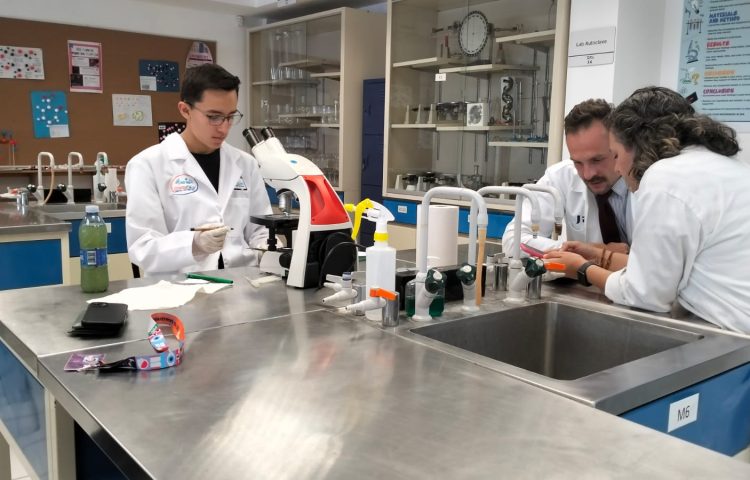12th-grade students are currently working on experiments for their Physics and Environmental Sciences and Societies courses as part of their Internal Assessments for the IB Diploma.
As Guadalupe Rivas, Lab Manager, explains, some students choose to conduct experiments for their Internal Assessments, where they must submit a report applying all the knowledge they have acquired throughout their academic journey, particularly since joining the IB Diploma program in 11th grade. “Conducting an experiment gives them another perspective on what their professional careers will be like,” she explains.
Regarding this experience, Roberto Rossano, Physics teacher, comments: “This is a final integrative project for the course, officially presented to the IB. Each student must design their own research question, methods, hypothesis, and experiment, and we, as teachers, provide support in the lab and in class to guide them and help them succeed.” This process enables students to become experts in their chosen topics as they develop a thesis, which involves a deep understanding of the scientific method and their respective subject matter.
In addition to the complexity and high level of the students’ projects, James Avery, ESS (Environmental Systems and Societies) teacher, highlights the importance of allowing students to choose their research topics: “When students are passionate about their topics, they are more likely to achieve the highest standards of performance. I believe this is a very important aspect of the Internal Assessment, especially in the Science department.”
Some of the projects our students are working on include the detection of microplastics in shrimp, viscosity studies, the impact of salinity concentration on conductivity, the effects of acid rain on crops, and identifying types of plankton in Querétaro’s waters, all with the support of their teachers, Miss Lupita, and Adriana Vega as the lab assistant.
Regarding the latter, student Andrés, owner of the project, shares that his research idea evolved over time: “At first, I thought about looking for microplastics in the water, but with the guidance of Miss Cristina and Mr. Brown, they helped me define the topic of my project.” He concludes, “What I’ve learned from this project is the importance of time and that each step takes more than one might think.”
Explorando la ciencia con pasión: alumnos de 12vo realizan experimentos del mundo real para sus evaluaciones internas del IB
Alumnos de 12vo se encuentran trabajando en sus experimentos de las materias de Física y Environmental Sciences and Societies, como parte de sus evaluaciones internas del Diploma IB.
Como explica Guadalupe Rivas, Lab Manager, algunos alumnos eligen realizar un experimento para su evaluación interna, en donde tienen que entregar un reporte, aplicando todos los conocimientos que han adquirido en su trayectoria estudiantil especialmente desde que se unieron a la materia de Diploma en 11vo grado. “Hacer un experimento les da otra perspectiva de lo que será su carrera profesional”, explica.
Sobre esta experiencia, Roberto Rossano, maestro de Física, comenta: “Este es un proyecto final integrador de la materia que se presenta oficialmente ante el IB. Cada alumno tiene que diseñar su propia pregunta de investigación, métodos, hipótesis y experimento, y nosotros como maestros les damos el apoyo en el laboratorio y en la clase para darles la orientación que necesitan y que lleguen a buen puerto”. Así los alumnos se convierten en expertos en su tema, al desarrollar una tesina, que implica un profundo conocimiento del método científico y de la materia.
Además de la complejidad y alto nivel de los proyectos de los alumnos, James Avery, maestro de ESS (Environmental Systems and Societies), destaca la importancia de que los alumnos elijan el tema de su investigación: “cuando los alumnos son apasionados por sus temas, es más probable que alcancen los estándares más altos de desempeño, creo que este es un aspecto muy importante de la evaluación interna, especialmente en el departamento de Ciencias”.
Algunos de los proyectos en los que nuestros alumnos están trabajando se encuentran la detección de microplásticos en camarones, viscosidad, la afectación de la conductividad basada en la concentración de sales, efectos de lluvia ácida en cultivos, y detección de tipos de plancton en aguas de Querétaro, todos con el apoyo de sus maestros, Miss Lupita, y Adriana Vega como ayudante de laboratorio.
Sobre este último, el alumno Andrés, dueño del proyecto, señala que su idea de investigación fue evolucionando: “al principio tenía en mente buscar microplásticos en el agua, pero con la guía de Miss Cristina y Mr. Brown, me ayudaron a definir el tema de mi proyecto” y finaliza: “lo que he aprendido con este proyecto es la importancia del tiempo, y que cada paso toma más de lo que uno cree”.



